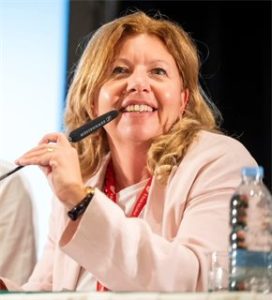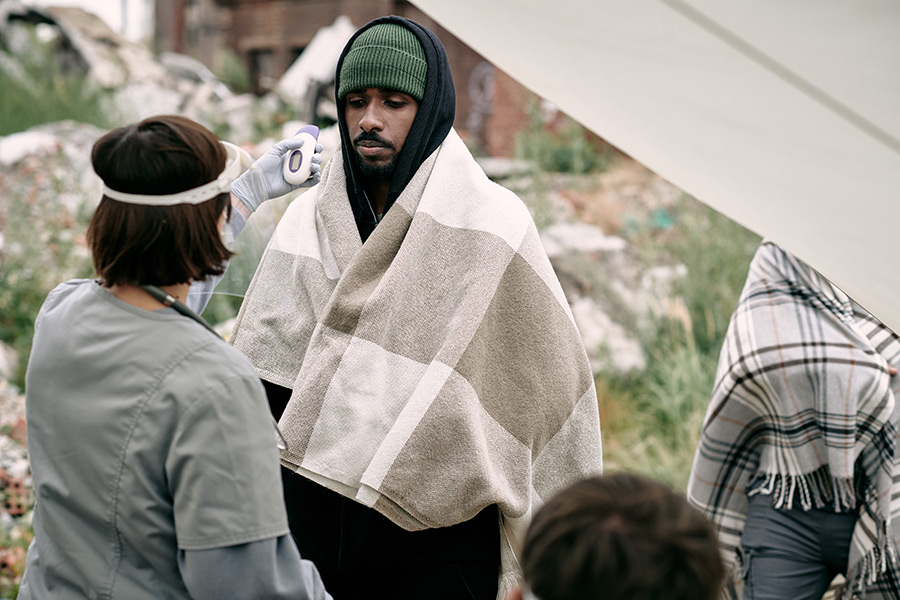EADV Congress 2024
Session type: Miscellaneous
Room: E102
Date: Thursday, 26 Sep, 10:15 – 11:45 CEST
Part of Session: EADV Research funding and Fellowships


Valeska Padovese
(Msida, Malta)
The SSKAPP project [Skin and sexually transmitted infections KAP (knowledge, attitude, and practice) survey and health promotion strategy using mobile and digital technologies in migrant populations] proposes clinical research aimed at developing health promotion messages on skin diseases and sexually transmitted infections (STIs) in migrants and displaced people in Malta and Lebanon. It also focused on the use of teledermatology to scale up the education and diagnostic capacity on skin diseases and STIs of healthcare providers working in migrants’ reception centers and displaced person camps.
Outreach clinics were carried on in Malta and specialist consultations were offered to migrants presenting with skin complaints. In Lebanon, the project’s team carried on a field assessment in the Bekaa Valley to establish the prevalence of skin conditions in refugees, identify a local champion, and after training, set up a teledermatology service.
A knowledge, attitude and practice (KAP) questionnaire were administered to migrants living in reception and detention centers in Malta, refugees living in informal settings in the Bekaa Valley (Lebanon), and vulnerable Lebanese population in Beirut, to identify gaps in education prevention of skin diseases and STIs and develop health promotion messages.
The project in Malta reached out in 2 years (2022-23) 3,241 migrants from LMIC via outreach clinics and at the sexual health clinic. They were mainly heterosexual men (77%), in the age range between 30 and 59 years (62%). Concerning origin, 24% came from Southeast Asia, 23% from South America, and 17% from Africa.
In Lebanon the project team trained 150 dermatologists attending the national annual dermatological conference in 2023 and 12 staff of an NGO operating in the Bekaa Valley. During a 5-day field mission we carried on 517 dermatological consultations for a total of 598 skin diseases diagnosed. The use of a teledermatology app continue supporting medical education on skin conditions in Lebanese displaced populations and Syrian refugees.
Learning points:
- Prevalence of skin diseases and STIs in TCNs in Malta was higher than in European migrants: Chlamydia 7.6%, Gonorrhoea 7.5%, syphilis 3.2%, scabies 0.7%, HIV 0.7%
- Migrants from LMIC presented late to the service and were diagnosed with more than one STI compared to their European counterpart
- 77% of responders to KAP questionnaire had some knowledge about HIV, which drops to 52% when asking about STIs.
- Stigma stops migrants from getting tested: over one third of respondents declared of being concerned about being verbally abused, abandoned by friends and family if tested positive for HIV.
- 82% of dermatological diagnoses in Lebanon during the field assessment were inflammatory skin conditions
- High rates of consanguineous marriages in Syrians favor the increase in the incidence of genetic disorders. The 1.8% of patients were diagnosed with genodermatosis, most of them following an autosomal recessive mode of inheritance.
- Scale up dermatology services providing training on the most common skin diseases, and use teledermatology to support the diagnosis of complex cases


